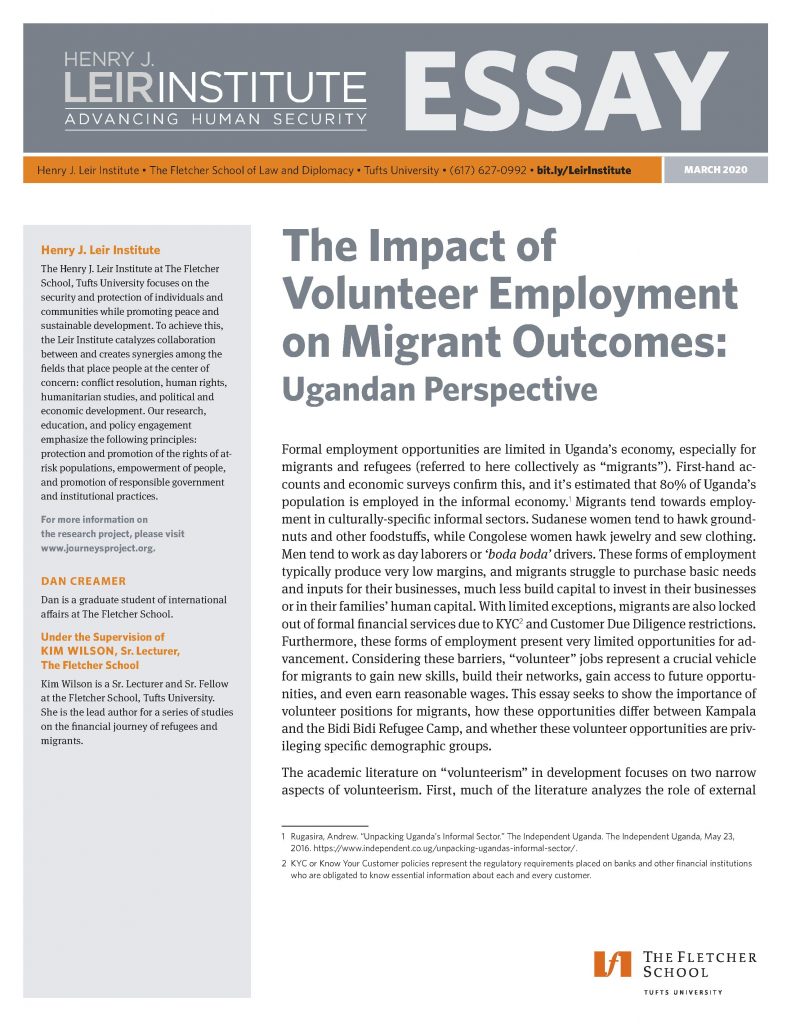The Impact of Volunteer Employment on Migrant Outcomes: Ugandan Perspective
By Dan Creamer, under the supervision of Kim Wilson
Formal employment opportunities are limited in Uganda’s economy, especially for migrants and refugees (referred to here collectively as “migrants”). First-hand accounts and economic surveys confirm this, and it’s estimated that 80% of Uganda’s population is employed in the informal economy. Migrants tend towards employment in culturally-specific informal sectors. Sudanese women tend to hawk groundnuts and other foodstuffs, while Congolese women hawk jewelry and sew clothing. Men tend to work as day laborers or ‘boda boda’ drivers. These forms of employment typically produce very low margins, and migrants struggle to purchase basic needs and inputs for their businesses, much less build capital to invest in their businesses or in their families’ human capital. With limited exceptions, migrants are also locked out of formal financial services due to KYC2 and Customer Due Diligence restrictions. Furthermore, these forms of employment present very limited opportunities for advancement. Considering these barriers, “volunteer” jobs represent a crucial vehicle for migrants to gain new skills, build their networks, gain access to future opportunities, and even earn reasonable wages. This essay seeks to show the importance of volunteer positions for migrants, how these opportunities differ between Kampala and the Bidi Bidi Refugee Camp, and whether these volunteer opportunities are privileging specific demographic groups.

For questions, please reach out to Professor Kimberley Wilson at Kimberley.Wilson@tufts.edu.
